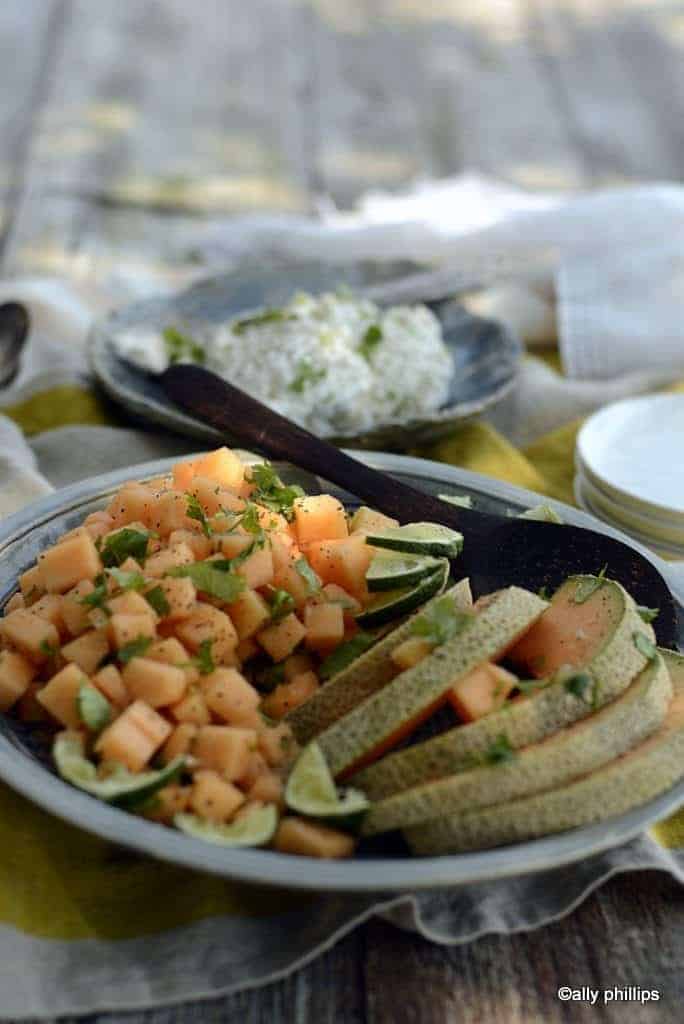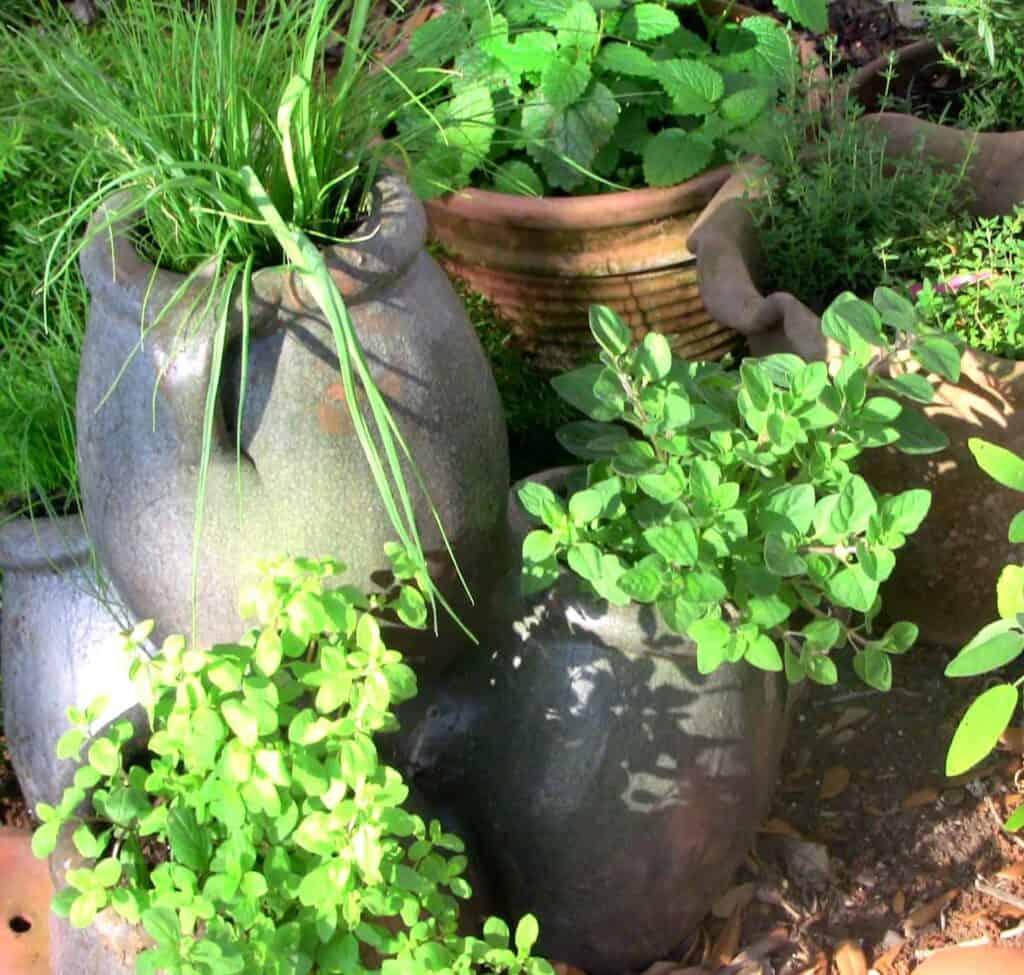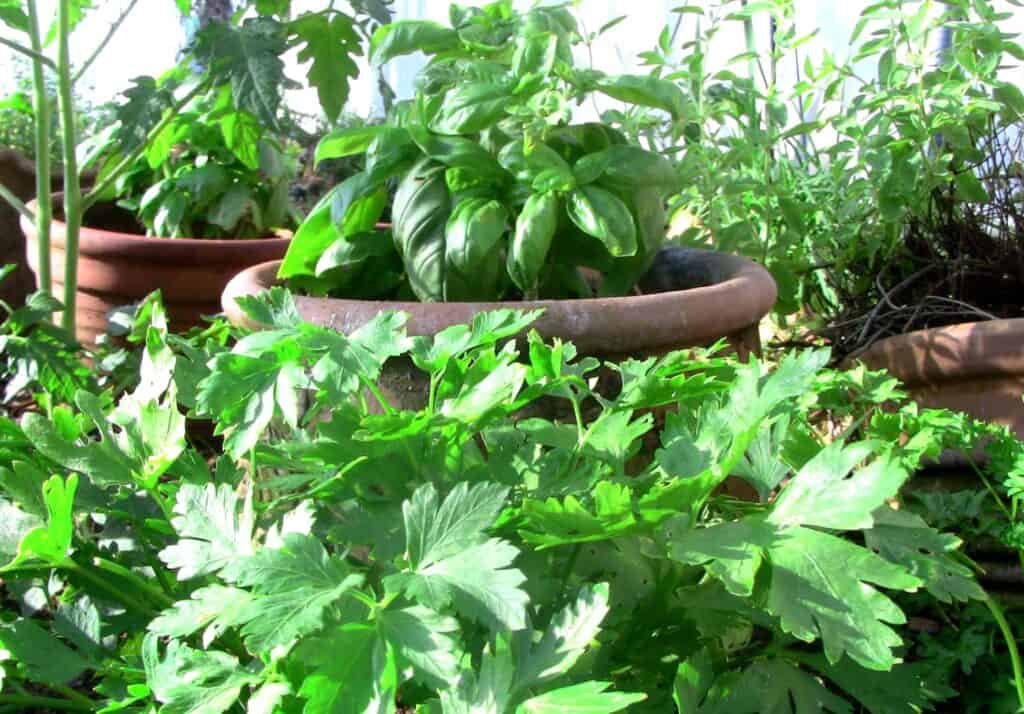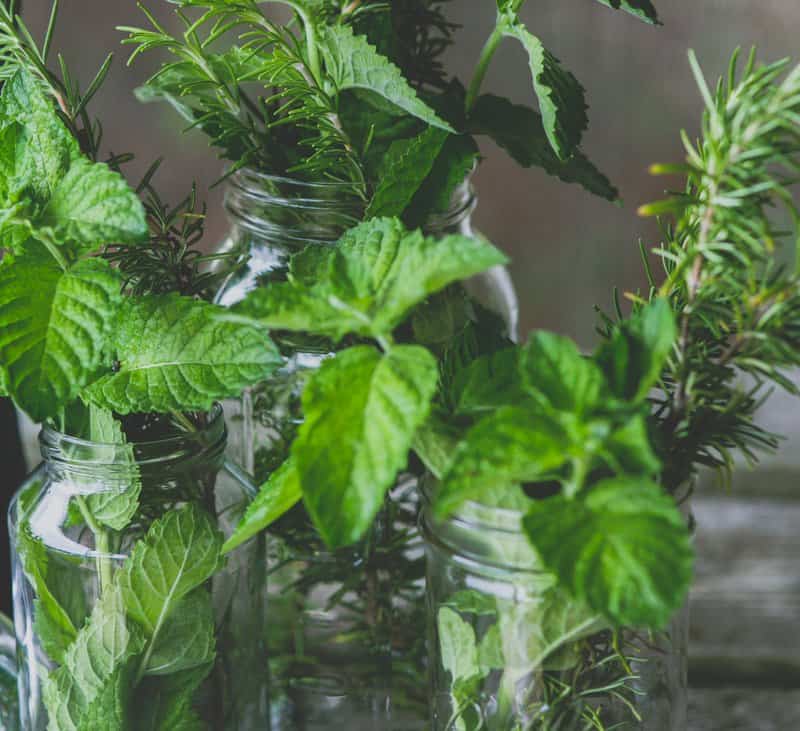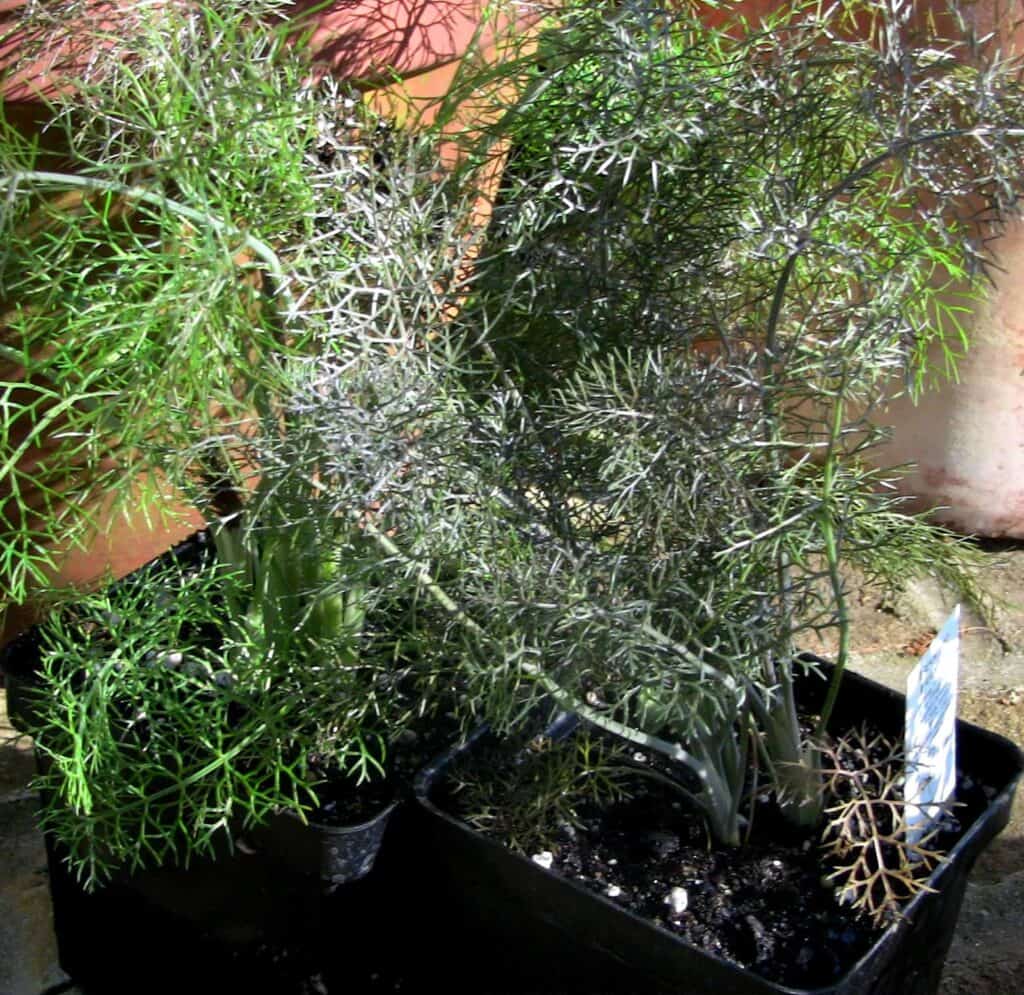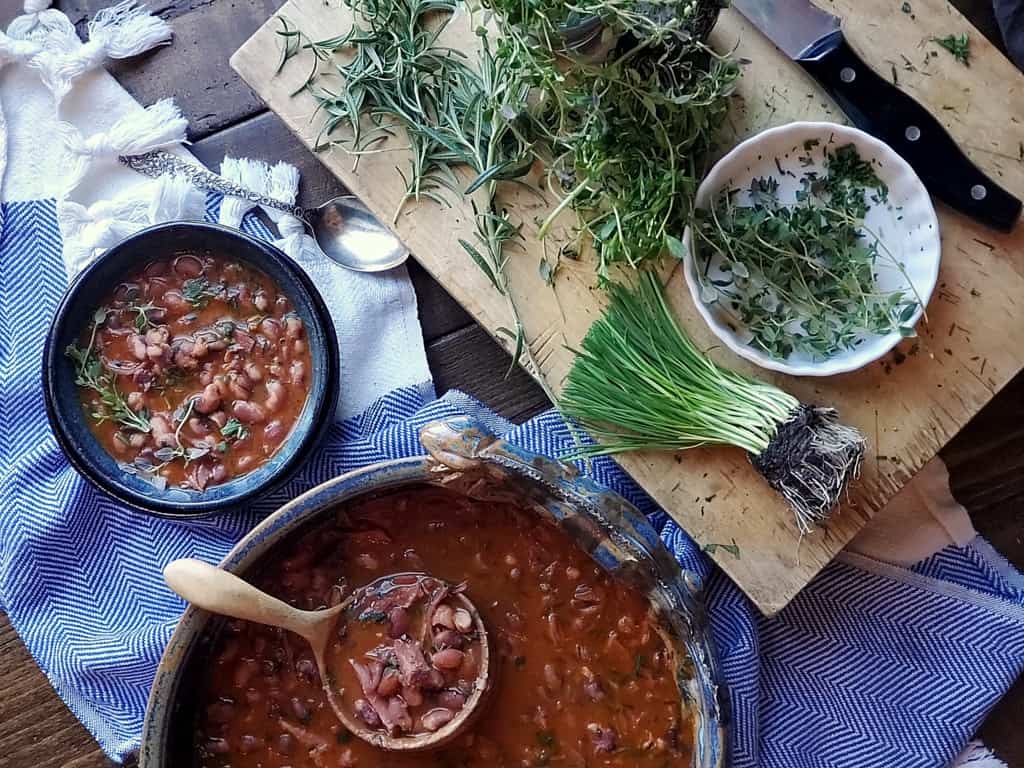The Powerful Health Benefits of Fresh Herbs

The jury’s in! The Powerful Health Benefits of Fresh Herbs can’t be denied. Add more nutritional value to your dishes with fresh herbs!
The Powerful Health Benefits of Fresh Herbs can’t be denied! Simple recipes and ideas for working in fresh herbs daily into your diet!
Benefits of Eating Fresh Herbs
Yes, fresh herbs have health-boosting compounds. And, they can fight aging! Known to be the foundation of the Mediterranean diet, fresh herbs not only elevate flavor and taste, but the come with nutritional benefits.
Many cultures incorporate green herbs daily into their dishes, and knowing that even a dash of one herb or another can help your health is reason enough to become more mindful of using fresh green herbs daily.
In addition to growing herbs, you’re gonna be outside and doing things. The benefits of just these outdoor simple things can’t be underestimated!
Herb Health
Herbs have been around for a long time. Actually for more than 5,000 years, herbs and spices have placed a prominent role in cooking.
Herbs emit aroma and provide flavor. Herbs can help preserve foods.
History shows that herbs and health are related. And, in today’s world with medical science, we’re better understanding the herb health benefits.
With more health awareness, the impact of herbs on nutrition and health can’t be denied. We’ve come full circle and now and have the wisdom to recognize that our ancestors of years ago had great knowledge about herbs.
Fresh Herbs
I’m a total fresh herb lover and border on being an herb addict. Well, not really. But, I do love to use them in cooking and in garnishing and styling. Here are a few of my favorite basil recipes both sweet and savory:
Lemongrass Basil Easy Bake Chicken
How to Use Fresh Herbs
Fresh herbs can always be used in cooking, garnishing and styling your foods. But, have you thought about using fresh herbs for table centerpieces!
There’s nothing more beautiful than a vase of fresh rosemary sprigs. And, when I have parsley growing out the ying yang, I’ll snip the long stems and leaves, put in water and make vases for the kitchen, powder room and other rooms. You get an aroma of freshness plus something beautiful.
How to Eat Fresh Herbs
Fresh herbs can even be used on sandwiches. Why not try large fresh sweet basil leaves on your next smoked turkey sandwich. Or make a caprese sandwich with fresh basil. And, fresh lemon thyme is perfect with chicken salad.
I absolutely love using fresh dill with salmon salad and on grilled chicken sandwiches! Just treat these herbs like you would baby spinach, arugula and other leafy greens.
Most Powerful Herbs for Health
Choosing one herb that’s the most powerful for your health is quite difficult. My advice is to incorporate a variety of fresh herbs into everything you eat daily. Don’t reserve fresh herbs just for special occasions or holidays. Fresh herbs are, for me, like salt and pepper. They’re to be used in moderation and daily with many foods.
Rosemary Herbs Health Benefits
With a more woody taste than thyme, rosemary is somewhat lemony with a hint of pine.
It’s a rich source of antioxidants and anti-inflammatory compounds. These are known to help boost your immune system.
How about this and rosemary? It’s considered a cognitive stimulant! Yes, it may help improve memory performance and quality of memry.
While rosemary sprigs look like a small branch from a pine tree, it’s certainly not a pine. It’s loaded with iron, cacium and vitamin B6.
Now rosemary is best used when cooking. Yes, you can use it as a garnish or even take the small green rosemary sprigs, chop them up and sprinkle on roasted potatoes or chicken. You can also use the sprigs as skewers. They’re substantial and perfect for threading shrimp or cherry tomatoes and even mozzarella balls.
Rosemary is prolific when it grows. As a perennial, it’s year round in temperature climates. I love to snip long rosemary sprigs and use in a vase as a table centerpiece. You not only get pretty, but you also get aromatic delight!
Health Benefits of Thyme Tea
Oh, fresh thyme is glorious in cooking and also in your tea or other refreshing drinks, cocktails and mocktails.
Thyme’s earthy, minty and lemony flavor, with a hint of pine, is quite versatile.
And, like basil, thyme may have some really great antimicrobial properties. An excellent source of vitamin C, tie a thyme bundle with several sprigs of this delightful herb and throw it in your next chicken soup! As it cooks, the tiny leaves will fall from the stems and then you can fish out the bouquet with tongs and dispose of the stems.
Because of the vitamin C and A in thyme, it’s a great aid when you feel a cold coming on. Just let it steep in your hot tea.
Other health benefits of thyme, iron, fiber, copper and manganese.
Health Benefits of Basil
For many, and for me, basil is my go to fresh herb. It’s a perfect pizza topper and can be used with so many recipes. Basil has a sweet, aromatic and somewhat peppery. flavor.
Rich in polyphenols, basil like other herbs is thought to help prevent chronic diseases.
It’s a great source of vitamins K, A and C and also supplies manganese and iron. But, don’t stop there. Basil also is choked full of calcium, magnesium and omega-3 fatty acids.
With its anti-inflammatory properties, basil can help lower the risk of conditions like arthritis, heart disease and bowl issues. And, basil has excellent antibacterial properties.
So, next time you’re in the produce aisle, buy fresh basil! And, make sure you grow basil in your summer garden regardless how large or small it is!
Quite expectedly, basil pairs well with Mediterranean flavors and works best when added at the end of cooking. But, I also use fresh basil chopped up in my pasta sauces. It’s also a nice accompaniment to fresh salads.

Health Benefits of Mint
Mint. Yes, another of my favorite herbs. And, if you haven’t tried my lemoneeee mint slushy, then you’re missing a mintilicious sippy!
Don’t confuse the taste of fresh mint with your toothpaste! Fresh mint is sweeter and earthier in taste.
It’s long been known that mint is a good remedy for gastrointestinal problems. It’s great to treat those tummy woes and research has even linked it to treating IBS, Irritable Bowel Syndrome.
Mint is perfect to add to fruit salsas. Chopped up mint with a medley of diced fruit, apples, pears, berries, some lemon or lime juice, maybe a hit of jalapeno and honey. Gosh, it’s refreshing.
Why not jazz up your simple water with mint sprigs! It’s not only delicious, but it’s pretty!
And, who doesn’t love chocolate and mint. So next time you’re making chocolate chip cookies, add some chopped up mint.
Very popular in the Middle East, mint is used in the famous mint tea as well as many recipes. Simply adding chopped mint to yogurt, ice cream, puddings or fruits adds intrigue to the palate. And, don’t forget to add fresh mint to your smoothies!
Everyone knows what mint tastes like because of, well, toothpaste. But fresh mint has a stronger, sweeter and earthier taste.
Nutritional Value of Parsley
Parsley is queen of vitamin K. One cup of chopped parsley gives over one thousand percent of your daily value of this vitamin. Parsley’s also rich in myricetin, which is a favonid that may have some anti-cancer properties.
While you can cook with parsley, it’s best to use it at the end of your cooking to finish your dish or garnish for serving.
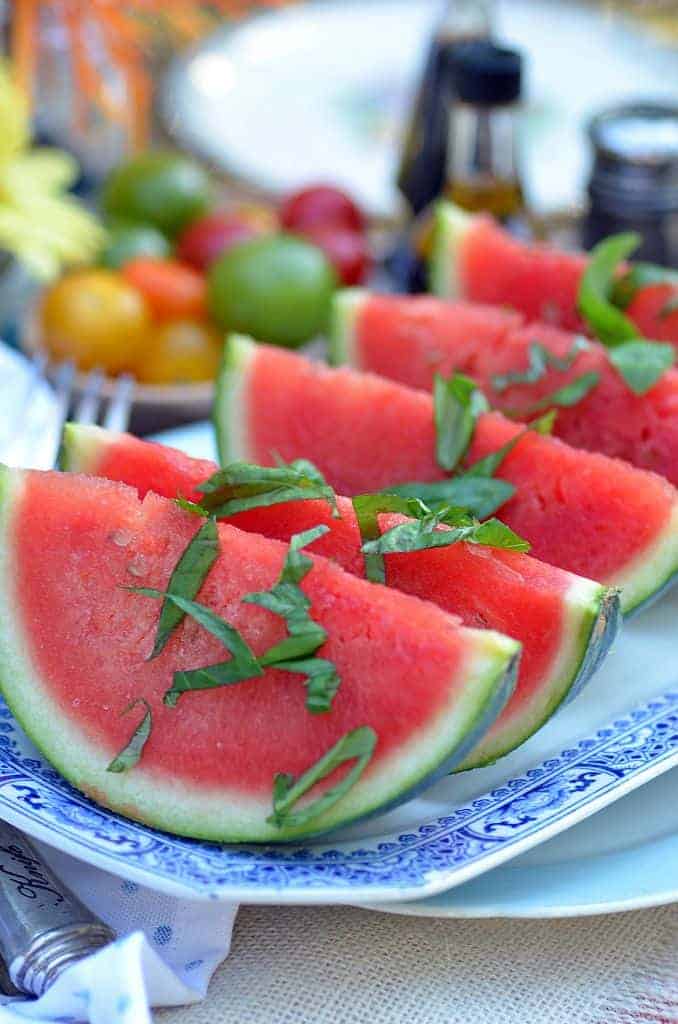
Eating Herbs
More great recipes using fresh herbs.
Preserved Lemons with Fresh Thyme
Mashed Red Potatoes and Fresh Dill
Cast Iron Skillet Salmon with Blue Cheese Dill Sauce
